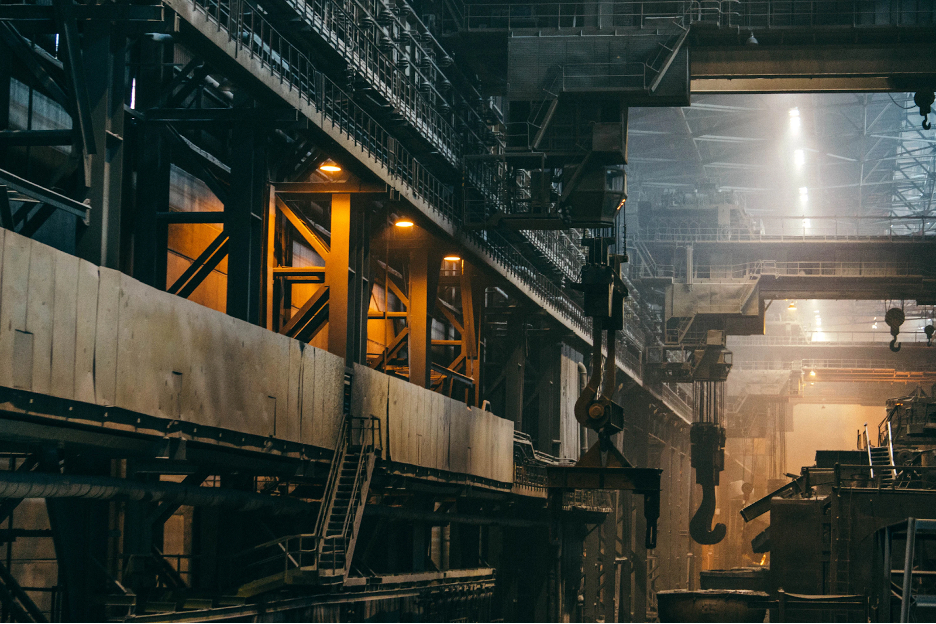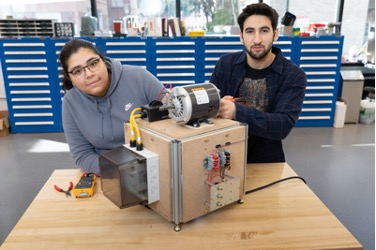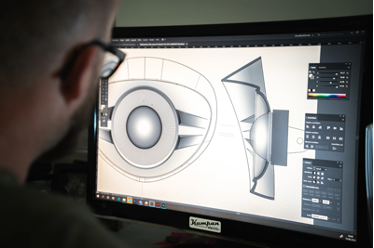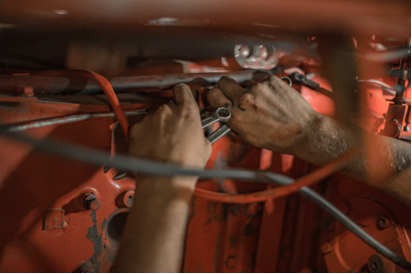
Exploring Careers in Industrial Engineering
Exploring Careers in Industrial Engineering
Engineers are the problem solvers behind the mundane, providing solutions that allow us to maintain and improve various aspects of our everyday lives, including medicine, construction, technology, and so much more. Ever wondered how complex processes, such as large-scale manufacturing operations, are streamlined to function seamlessly? The optimization of such processes is all thanks to the work of Industrial Engineers. If this sounds interesting to you, then read on to explore careers in the dynamic field of Industrial Engineering.
Exploring Careers in Industrial Engineering
Jobs in industrial engineering are expected to grow 12% by 2032 with high earning potential, boasting a median annual salary of $96,360. If you’re considering a career in Industrial Engineering, employers typically look for candidates with a Bachelor’s degree in Industrial Engineering or a related field, including Industrial Design or Mechanical Engineering. At NJIT, you’ll be prepared to enter the workforce with a top STEM degree, ready to take on any job in the Industrial Engineering field.
What is Industrial Engineering?
Industrial Engineering is a multifaceted sector of engineering that focuses on optimizing processes, systems, and resources within various industries through the application of mathematical, engineering, and scientific principles. For example, an Industrial Engineer might work on streamlining a production assembly line or redesigning a warehouse layout for improved efficiency.
Industrial Engineers work in a variety of settings, including factories and research centers, and in diverse fields as well, from manufacturing and medicine to supply chain and even aerospace. No matter the industry, it is the job of an Industrial Engineer to optimize processes in a company in order to improve efficiency, productivity, and product quality.
Careers in Industrial Engineering
By earning your Bachelor’s or Master’s in Industrial Engineering, you will open the doors to a wide variety of job opportunities in diverse industries.
1. Quality Assurance Inspector
Before any articles of clothing, food items, and technological devices are shipped from their warehouse and to a retail store, each item must undergo a quality check. A Quality Assurance Inspector works in different factories and manufacturing plants and conducts quality checks by inspecting products before they are shipped, ensuring that they are safe and meet the required standards of quality and compliance. The job of a Quality Control worker includes conducting random product testing, identifying defects and deviations, and maintaining consistency among products.
A career in Quality Control will be a good fit for those with high attention to detail and mechanical aptitude. What’s great about becoming a Quality Assurance Inspector is that you are able to work in a wide variety of industries, as Quality Control is necessary for all kinds of products, from sectors in medicine and chemistry to food and clothing. If you're interested in Quality Control, a degree in Industrial Engineering will help you branch out into nearly any industry of your interest.

2. Manufacturing Engineer
Are you eager for a career with major contributions to innovation and groundbreaking advancements? Then look no further than a career in Manufacturing Engineering. Manufacturing Engineers design, implement, refine, and manage manufacturing processes to create systems that produce products using raw materials. It is their goal to produce such products efficiently while maintaining quality. Manufacturing Engineers are skilled in working with machinery and familiar with processes such as cutting with lasers, plasma, or electrical discharge machining (EDM).
You can be part of creating innovative products as a Manufacturing Engineer. Employers look for candidates with backgrounds in industrial, mechanical, or production engineering. With a median salary of $76,300, not only does becoming a Manufacturing Engineer offer a fulfilling career path, but it also offers lucrative opportunities.

3. Industrial Designer
If you enjoy thinking outside the box and using your creativity to solve problems, then a job in Industrial Design — a career that blends technical expertise with artistic vision — may be a great fit for you. Industrial Designers create product designs prior to the manufacturing stage to create innovative and functional products. Industrial Designers work on a wide variety of products, including consumer electronics, appliances, vehicles, medical equipment, and so much more. As an Industrial Designer, you can expect to conceptualize and develop products, conduct user research, and create visual representations all to reach the goal of a final product that is aesthetically pleasing and optimized for functionality and usability.
According to the U.S. Bureau of Labor Statistics, Industrial Designers make a median salary of $75,900. If combining creativity with technical knowledge sounds like your cup of tea, then you can get started today by working towards your degree in Industrial Engineering or Industrial Design.

4. Industrial Mechanic
As an Industrial Mechanic, you can expect to work hands-on with different machinery, maintaining, installing, repairing, and transporting equipment for various companies. The duties of Industrial Mechanics, also called Millwrights, include interpreting machine blueprints, preparing new machinery for use, and inspecting machinery to ensure that they are operating properly, safely, and efficiently. In order to thrive in an Industrial Mechanic position, possessing technical knowledge, safety awareness, and the ability to adapt to different situations is essential. If you have a knack for problem-solving, enjoy working with machinery, and have a passion for maintaining and repairing complex systems, then you might enjoy a career as an Industrial Mechanic.
The need for Industrial Mechanics is high, with a projected job growth of 13% by 2032. Not only will you be able to utilize your technical skills to troubleshoot complex machinery, but Industrial Mechanics are needed in various industries, so you can work in an area you're passionate about, from mining and construction to recycling and food processing.

5. Industrial Electrician
In the realm of Industrial Engineering, an Industrial Electrician handles the smooth operation of electrical systems, machinery, and equipment across diverse industrial sectors. As an Industrial Electrician, you might work for manufacturers, electrical firms, or steel production plants monitoring electrical controls and other electrical equipment. Some of their responsibilities include handling new electrical systems, maintaining records, and repairing different equipment. Industrial Electricians play an integral role in the Industrial Engineering team, illuminating the path to efficiency and reliability in industrial environments.
Industrial Electricians earn a median salary of $60,240 annually, and the profession boasts a growth rate of 6%, faster than the average across industries. As industries evolve and technologies advance, the demand for skilled Industrial Electricians will continue to grow.

Begin your career with a degree in Industrial Engineering at NJIT
The Industrial Engineering industry promises a wide variety of career paths, lucrative opportunities, and flexibility to work in many different sectors. At NJIT, you can work towards your Bachelor’s in Industrial Engineering and graduate fully prepared to enter the workforce. With NJIT’s Industrial Engineering program, you’ll have the knowledge and skills necessary to thrive in any career in the field. And, as an NJIT student, you’ll have access to Career Development Services and support from faculty with professional experience. Get started and apply today!